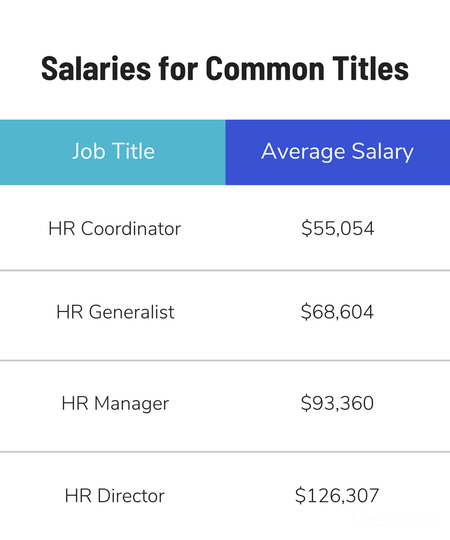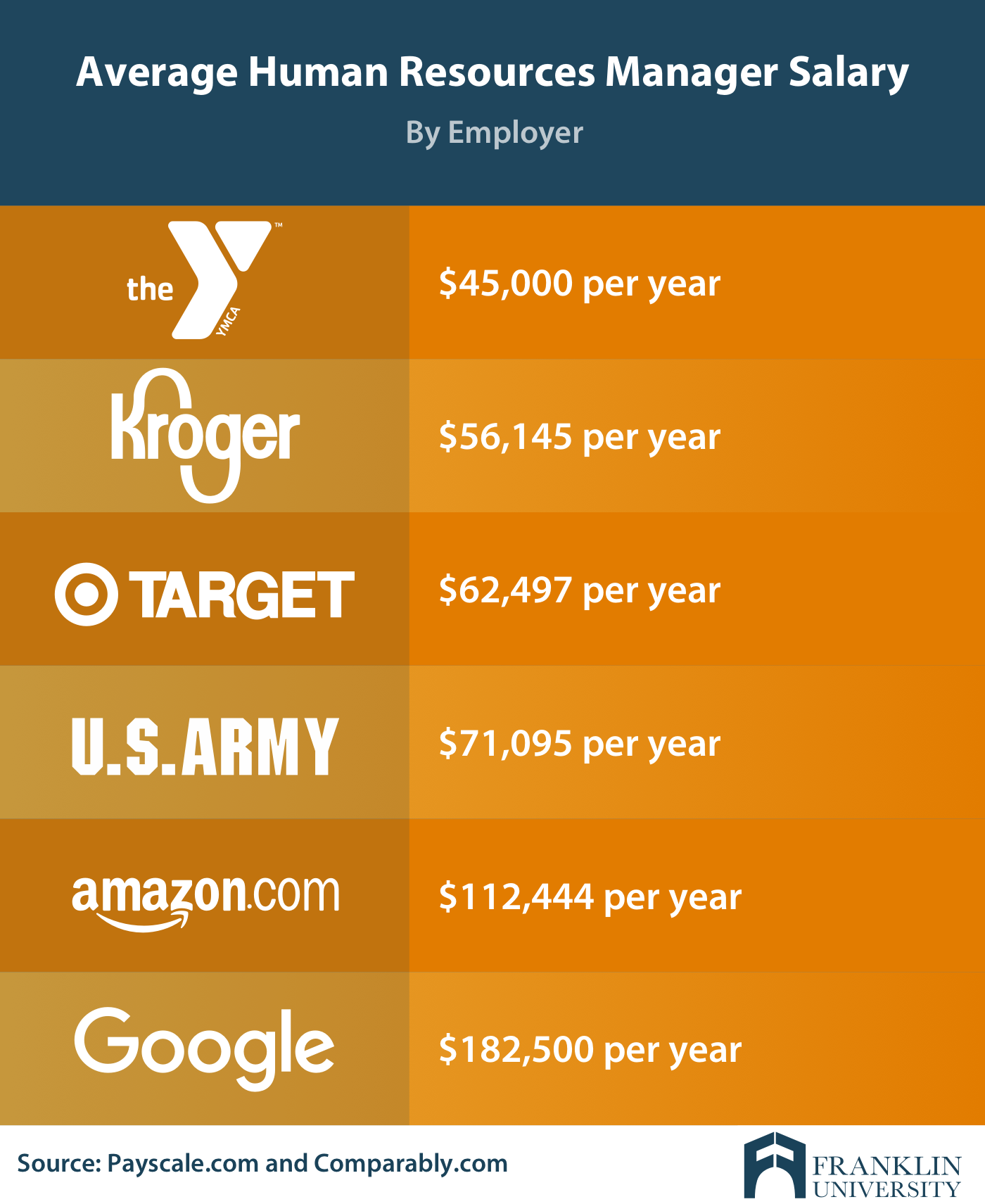Curious about the financial rewards of a career in human resources? Well, you’ve come to the right place! Today, we’re going to delve into the fascinating world of human resources salaries. Whether you’re considering a career change or simply want to satisfy your curiosity, we’ll provide you with the lowdown on how much human resources professionals can make. So, buckle up and get ready to uncover the salary secrets of the HR world!
When it comes to human resources, there’s a wide range of factors that can influence how much professionals in this field earn. From experience and education to location and industry, there are numerous variables at play. So, if you’re wondering about the salary potential in human resources, you’re not alone. Many individuals are eager to find out just how lucrative this field can be. In this article, we’ll explore the average salaries for different HR roles, discuss the factors that can impact earnings, and provide some tips on how to maximize your earning potential in the world of human resources. Get ready to discover the financial side of HR!

How Much Do Human Resources Make?
Human resources professionals play a vital role in the success of any organization. They handle a range of responsibilities, from recruiting and hiring to employee training and development. But how much do human resources professionals make? In this article, we will explore the salary potential for individuals in this field and discuss the factors that can influence their earnings.
Factors Affecting Human Resources Salaries
When determining the salary range for human resources professionals, several factors come into play. One of the most significant factors is the level of education and experience. Those with advanced degrees and extensive experience in the field may command higher salaries compared to entry-level professionals.
Another factor that can affect earnings is the size and type of the organization. Larger companies typically offer higher salaries, as they tend to have more complex HR needs. Additionally, some industries, such as finance and technology, may offer higher salaries compared to others.
Education and Certification
Education plays a crucial role in the earning potential of human resources professionals. While a bachelor’s degree is typically the minimum requirement for entry-level positions, obtaining a master’s degree in human resources or a related field can significantly boost earning potential. Additionally, obtaining professional certifications, such as the Professional in Human Resources (PHR) or the Senior Professional in Human Resources (SPHR), can demonstrate expertise and increase the chances of earning a higher salary.
In terms of certifications, the PHR certification is suitable for professionals with a few years of experience, while the SPHR certification is designed for those with more extensive experience. These certifications validate the knowledge and skills of human resources professionals, making them more marketable in the job market.
Experience and Seniority
Experience is a significant factor when it comes to salary negotiations in the human resources field. Professionals with several years of experience in various HR roles, such as recruitment, employee relations, and compensation, are likely to earn higher salaries compared to those with limited experience.
Furthermore, seniority within an organization can also impact salary levels. HR professionals who hold managerial or executive positions are often compensated more generously due to the increased responsibilities and strategic decision-making involved in these roles.
Salary Ranges for Human Resources Professionals
The salary range for human resources professionals can vary widely depending on the factors mentioned above. According to the Bureau of Labor Statistics, the median annual wage for human resources specialists was $63,490 as of May 2020. However, it is essential to note that salaries can range from around $38,000 to over $110,000, depending on various factors.
In general, entry-level positions in human resources may have lower starting salaries, typically ranging from $35,000 to $50,000. As professionals gain experience and move into mid-level roles, salaries can increase to the range of $50,000 to $80,000. Senior-level positions, such as HR managers or directors, may earn salaries exceeding $100,000.
Additional Benefits and Perks
In addition to base salaries, human resources professionals often enjoy various benefits and perks. These may include healthcare and retirement plans, paid time off, flexible work schedules, and professional development opportunities. Some organizations may also offer performance-based bonuses or profit-sharing programs.
It’s worth noting that the total compensation package for human resources professionals goes beyond just the base salary. When considering job offers or negotiating salaries, it is essential to take into account the overall benefits and perks offered by the organization.
Conclusion
In conclusion, the salary potential for human resources professionals can vary based on several factors, including education, experience, and the size and type of the organization. Obtaining higher levels of education, such as a master’s degree, and obtaining professional certifications can significantly increase earning potential. Additionally, gaining experience and advancing to senior-level positions can lead to higher salaries in the field of human resources. As with any career, it’s important for professionals to consider not only the base salary but also the total compensation package and benefits offered by potential employers.
Key Takeaways: How Much Do Human Resources Make?
1. Human resources professionals make salaries that vary depending on factors such as experience, education, and location.
2. Entry-level human resources positions typically start around $40,000 to $50,000 per year.
3. With more experience and higher-level positions, human resources professionals can earn salaries ranging from $60,000 to over $100,000 annually.
4. Human resources managers and directors tend to earn higher salaries compared to HR specialists or coordinators.
5. Location plays a significant role in salary differences, with higher wages often being offered in larger cities or metropolitan areas.
Frequently Asked Questions
Here are some frequently asked questions about human resources salaries:
1. What factors influence the salary of human resources professionals?
Several factors can influence the salary of human resources professionals. One important factor is the level of experience and expertise. HR professionals with more years of experience and specialized skills may command higher salaries.
Additionally, the industry and location can play a role in determining salary. HR professionals working in industries with higher demand, such as technology or healthcare, may earn higher salaries. Similarly, HR professionals in cities with higher costs of living may receive higher compensation packages.
2. What is the average salary for entry-level human resources positions?
The average salary for entry-level human resources positions can vary depending on various factors. On average, entry-level HR professionals can expect to earn between $40,000 and $50,000 per year. However, this can vary based on factors such as location, industry, and company size.
It’s important to note that entry-level salaries may increase as professionals gain more experience and progress in their careers.
3. Do human resources managers earn higher salaries than HR specialists?
In general, human resources managers tend to earn higher salaries compared to HR specialists. HR managers are typically responsible for overseeing the entire HR department and may have more years of experience and a broader range of responsibilities.
However, it’s important to note that salaries can vary depending on the size of the organization and the level of expertise of the individual. In some cases, HR specialists with specialized skills or working in high-demand industries may earn higher salaries than generalist HR managers.
4. Are there opportunities for advancement in the field of human resources?
Yes, there are opportunities for advancement in the field of human resources. HR professionals can progress in their careers by gaining more experience, acquiring additional certifications or qualifications, and taking on higher-level roles within their organizations.
Advancement opportunities may include moving from an HR specialist role to a managerial position, taking on leadership roles within HR departments, or even transitioning to executive-level HR positions.
5. Are there any additional benefits or perks that human resources professionals may receive?
Along with competitive salaries, human resources professionals may also receive additional benefits and perks as part of their compensation packages. These can vary depending on the organization, but common benefits may include healthcare coverage, retirement plans, paid time off, and professional development opportunities.
Some organizations may also offer unique perks such as flexible work arrangements, wellness programs, or employee discounts. The specific benefits and perks offered can vary, so it’s important to consider these factors when evaluating job offers in the HR field.

Do HR Jobs Pay Well?
Final Summary: How Much Do Human Resources Make?
So, you’re curious about the salary of human resources professionals? Well, you’ve come to the right place! After delving into the depths of the internet, we’ve gathered all the information you need to know. Although it varies depending on factors such as experience, qualifications, and location, the average salary for human resources professionals is quite promising.
Now, let’s get down to the nitty-gritty. According to our research, the median annual wage for HR specialists falls around $61,920, which is not too shabby at all. However, keep in mind that this figure can go as high as $105,930 for those in the top 10% of the field. It’s safe to say that human resources can be a lucrative career path if you put in the effort and climb up the ladder.
Remember, these numbers aren’t set in stone. Various factors can influence your earning potential, such as the industry you work in, the size of the company, and your level of expertise. So, if you’re considering a career in human resources, rest assured that it can offer both financial stability and room for growth. Get ready to embark on a journey filled with exciting challenges and rewarding opportunities!